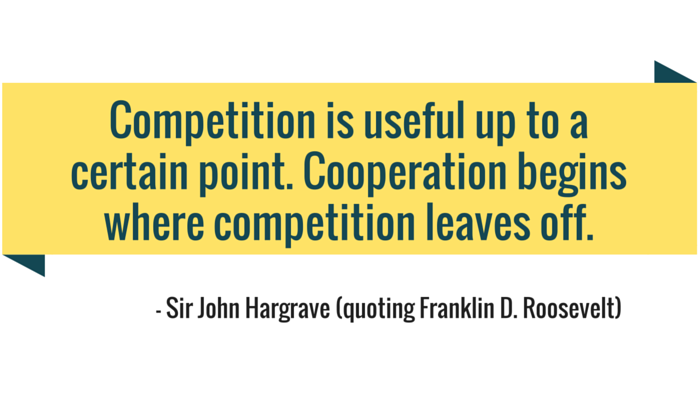True story: We recently had a prospective customer call into our sales line. This was a bright guy, a well-educated VP of Marketing for a large company. He was looking for someone to run his company’s content marketing efforts, he told us, and he had read an article online where Media Shower was rated #1.
That article was on our site.
It was an article called “Top 10 Article Writing Services, Rated and Reviewed,” where we reviewed each of our competitors, explaining the pros and cons in relation to our own service. We not only gave free advertising to each of our competitors, we even linked to their sites, so customers could easily leave our site and check out the competition. We regularly get new customers from this page.
“But,” you ask, “how many prospective customers do you lose?” In fact, we’ve had competitors come up to us at trade shows and say, “Thanks for mentioning us in that article. We get a lot of sales leads from you guys.” In other words, nice job driving your traffic to us.
My father, who ran Michelin’s marketing for years, was so adamant about not mentioning his competitors that he would literally not mention them by name. You’d be in a meeting with him, and he’d just refer to them as “the competition.” (Hint: It was Goodyear.)
That’s the first school of thought: we are in a war, with armies from multiple nations on every side. Bullets are flying everywhere, and the receptionist is screaming. Or: this is a football match, with five or six teams simultaneously on the field, pushing for every yard. No one’s even sure where the football is.
Here’s an alternate thought that I want to plant in your brain: you can win by cooperating.
Peter Thiel, one of the founders of PayPal, changed my thinking about competition in his excellent book Zero to One. “Competition is overrated,” he says, suggesting that “Competition may be a thing that we’re taught, and that we do, unquestioningly.” Thiel’s argument is that in perfect competition, that model so beloved by economists, no one can capture enough value to make it worth their while. Instead, Theil encourages us to think, What valuable company can I build that no one else is building?
In other words, can you zig while everyone else is zagging?
Look: our customers are smart. They’re going to do their homework. We can’t exactly hide our competitors in this day and age. My guess is, your customers are the same way. So while everybody else hordes traffic, we’ll open it up. When they zig, we’ll zag.
Instead of competition, think coopetition. Instead of enemies, think frenemies.
We regularly host interviews with competitors on our Media Shower blog: we might have the CEO of a competing company share her wisdom on content marketing for our own blog. Our competitors, in return, promote these interviews on their own websites. Everybody wins. I never worry that one of “our” customers will read the interview and run screaming to the competitor. If we do our job right, what they’ll remember is the interview I read on Media Shower’s blog.
Cooperating is counterintuitive, and it’s not right for every situation. As Roosevelt said, the trick is to figure out where competition ends and cooperation begins. Certainly we don’t want to actively push our customers to competitors (although we sometimes do, if they’re not a good fit for Media Shower). We don’t want to take our competitors out to lunch (although I did, a few weeks ago). We don’t want to give away our trade secrets to competitors (although I am, right now, in this post).
People locked in a competition mindset see business — and life — as a zero-sum game. Everyone is fighting for scarce resources. It is difficult to build a successful business with that thinking, because you never look beyond the battlefield to see all the other possibilities open to you. You tend to become obsessively locked onto your enemy. You get tunnel vision, and you can never ask Peter Thiel’s question: What valuable company is nobody else building?
I started my career at the technology site ZDNet, where in the early days we were in a heated battle with our competitor CNET. Management would drill into us, We have to beat these guys. One manager was skilled in karate, and would illustrate with martial arts techniques how we were going to catch CNET off balance and throw them to the ground. Day after day: beat CNET, beat CNET, beat CNET.
I vividly remember the day when management called the all-staff meeting to announce that ZDNet had been acquired by CNET. (It was an awkward meeting.) Today, both sites do well: ZDNet focuses on business computing, and CNET focuses on consumer electronics.
If you can’t beat ’em, join ’em. And sometimes, even if you can beat ’em, it still makes sense to join ’em.
Sir John Hargrave is the CEO of Media Shower and author of Mind Hacking, the how-to manual for hacking your head, available in 2016 from Simon & Schuster’s Gallery Books.
This post is free to distribute under Creative Commons 4.0: if you like it, share it.
